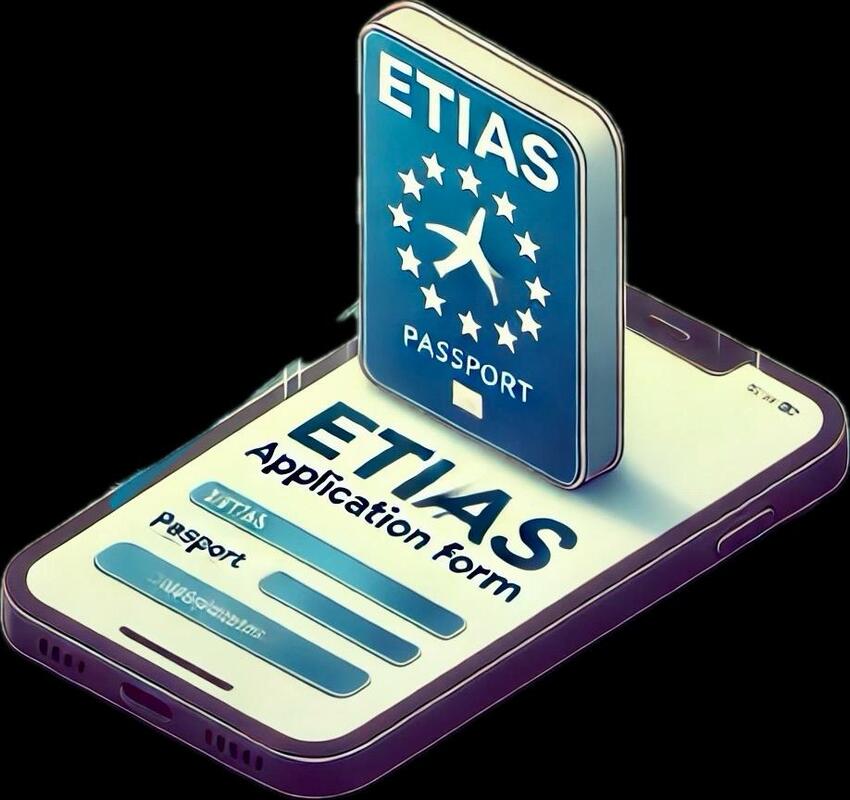

As of mid-2025, UK citizens travelling to the EU and Schengen zone countries will be required to obtain an ETIAS (European Travel Information and Authorisation System) before entry. This system is similar to the ESTA system used for travel to the USA, providing an additional security layer for non-EU nationals who previously enjoyed visa-free travel. This includes not only leisure travellers but also business professionals, such as those in the cannabis industry, who frequently travel between the UK and EU.
How Does ETIAS Work?
ETIAS is essentially a pre-screening process for non-EU travellers. The application is expected to take only a few minutes, completed online or via a mobile app. It will cost €7 for travellers aged between 18 and 70, but will be free for younger or older applicants. Once approved, the ETIAS authorisation will be valid for up to three years or until the passport expires, whichever comes first.
For most applicants, approval will be near-instantaneous, but some applications may take longer—up to 30 days—if further checks are required. While this could impact those who travel for work at short notice, it is designed to mitigate risks associated with security, health, and illegal migration concerns.

Why Does ETIAS Matter to the Cannabis Sector?
The introduction of ETIAS is part of a broader effort by the EU to regulate entry into its territories, tracking non-EU nationals for both short-term and long-term visits. This means that CTA members in the cannabis sector—whether attending business conferences, meetings, or trade shows in the EU—must ensure they comply with the new requirements well in advance of their travel. As delays could occur for those needing extra checks, planning early will be crucial to avoid disruptions.
For those involved in medical cannabis, the travel process may be impacted by the need to carry documentation for any cannabis-based products used for personal medical purposes. ETIAS does not affect the legal status of carrying cannabis-based medicines, but the introduction of biometrics, facial recognition, and passport scans under the Entry/Exit System (EES) could raise questions about the compatibility of these systems with national legal exemptions for medical use.

ETIAS and the Entry/Exit System (EES)
ETIAS will operate alongside the EU’s new Entry/Exit System (EES), which will also become operational in 2025. EES will replace the traditional passport-stamping system with a digital entry/exit log, making it easier to track how long visitors from non-EU countries stay within the Schengen Area. This is important for ensuring compliance with the 90-day visa-free limit. For business travellers attending multiple events or spending extended periods in the EU, this could limit how long they can stay in the Schengen Zone within any 180-day period.
EES will collect biometric data, such as fingerprints and facial images, upon entry. This will not only provide an additional layer of security but also ensure that records of overstays are automatically flagged. If you stay longer than the 90-day limit within any 180-day period, you could face fines or travel bans, impacting future business trips.
What About Exceptions?
Certain categories of travellers will be exempt from ETIAS, such as UK nationals who have rights under the Withdrawal Agreement, allowing them to reside in an EU member state. These individuals will not need to apply for ETIAS to travel within the Schengen Area, though they must carry documentation proving their status. Non-EU nationals with long-term residence permits in any EU country will also be exempt.
Planning Ahead
ETIAS is an additional requirement that CTA members need to be aware of when planning trips to the EU for business. While the process is relatively straightforward, it’s essential to apply well ahead of your travel dates, especially if you expect any complications with your application. With both ETIAS and EES coming into effect, the EU is tightening border security, which could have knock-on effects on travel times and convenience, particularly at busy points like Dover and the Eurotunnel.
Ultimately, while ETIAS is a new step in post-Brexit travel for UK nationals, it’s a manageable one with proper preparation. Ensuring you have valid authorisation before you travel will be key to continuing to operate seamlessly within the EU.
Published - Sian Phillip’s - 05/10/2024






